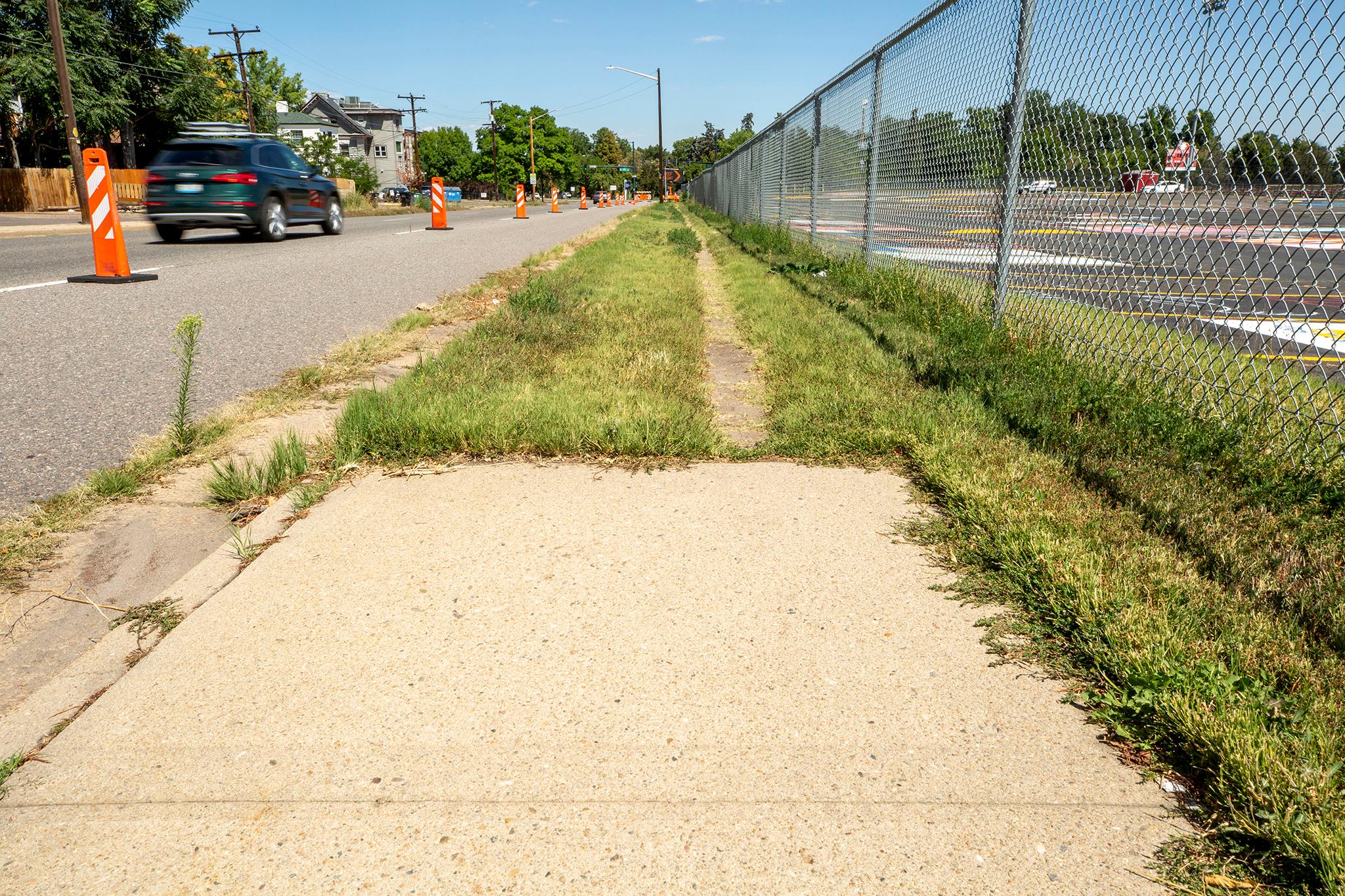Last November, Denver voters approved an ambitious plan to fix Denver's sidewalks and build them where there currently aren't any.
The plan calls for the costs to be partially be covered through fees on property owners starting in 2024.
That figure is calculated based on how many linear feet of a given property faces the street. Fees also vary based on residential versus commercial property, and the type of street the property faces.
Since the aim of the program is to both repair and build sidewalks, owners with properties along streets without sidewalks will still pay the fee. The amount is based on the number of linear feet a property faces a public street, not how much it faces a sidewalk.
Now, property owners can find that exact figure using an online search tool from the city. Users can look up their cost by putting in their address (including North, South, East and West directions on their street).
Here's what property owners should know about how fees will be collected.
Some neighborhoods can get a 20% fee discount, if they are located in areas identified as Neighborhood Equity & Stabilization (NEST) neighborhoods. You can find a list of NEST neighborhoods here. The city's tool will also indicate to you if your property is in a NEST area.
Some properties will come up in the search tool with $0 fees. This means they either do not face public streets, and will not have fees, or they are part of a Homeowners Association (HOA) and get billed separately through their HOA.
The fees are calculated using information from the assessor's office. Owners who believe their information is incorrect can fill out an online form.
The city still does not know how much the program will cost in total and how long it will take.
When campaigning for the ballot initiative, advocates estimated that the program would raise more than $40 million per year, which could be bonded to raise $850 million, fully funding and building the project within nine years.
But a city analysis of the initiative found that the project could take around 27.5 years, with a shortfall of $7.3 billion over that time. City officials said the major gap in cost would come from the price of acquiring land to build new sidewalks.
Department of Transportation and Infrastructure spokesperson Nancy Kuhn said the actual cost and timeline are still unclear.
"We're doing an analysis of that, we hired a third party person to do that," she said. "They're in the process of working on that and it's not finalized yet, so I think we'll have more to share on that."
Have questions about the new fees or concerns about your own property? Drop me a line at [email protected].











